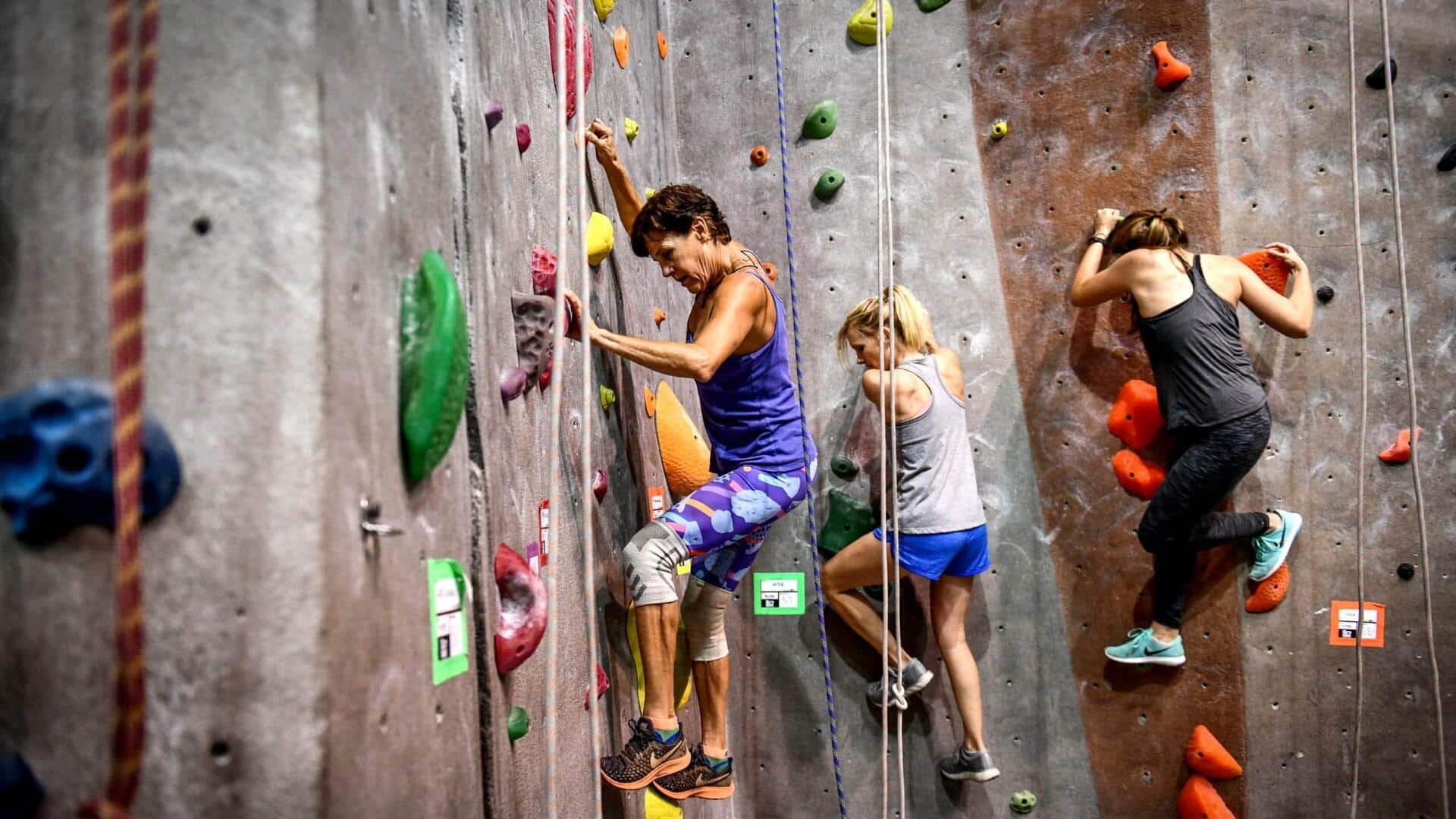
Rock climbing v/s ballet: Comparing agility and strength
What's the story
Rock climbing and ballet are two activities that require different physical attributes. While rock climbing is all about strength and endurance, ballet focuses on grace and flexibility. Both activities require a high level of physical fitness, but they do so in different ways. Knowing the differences between the two can help you choose the right activity for your fitness goals or simply understand how each one contributes to overall physical health.
#1
Strength requirements in rock climbing
Rock climbing is all about upper body strength, core stability, and grip power. Climbers need strong arms and shoulders to pull themselves up, while a strong core helps maintain balance on the wall. Finger strength is also important for holding onto small handholds. Climbers often do exercises like pull-ups and fingerboard training to improve their strength.
#2
Flexibility demands in ballet
Ballet requires a lot of flexibility to perform the intricate movements and poses. Dancers need to be able to stretch their muscles to the limit without hurting themselves, which is why they need a lot of warm-up sessions before practice. Ballet dancers need to have flexible hips, legs, and back to execute the graceful movements. Regular stretching exercises are a must to maintain and improve flexibility.
#3
Endurance versus stamina
Rock climbers need endurance as they spend long hours scaling different routes, sometimes for several hours at a time. Endurance training usually involves aerobic exercises such as running or cycling that improve cardiovascular health. This helps climbers sustain energy levels during long climbs.
#4
Balance and coordination skills
Ballet emphasizes balance and coordination as dancers move through choreographed routines that require precise timing and control over their bodies' movements. These skills are essential for executing turns, jumps, and other complex sequences without losing stability or rhythm. Practicing these elements regularly helps dancers refine their technique over time.